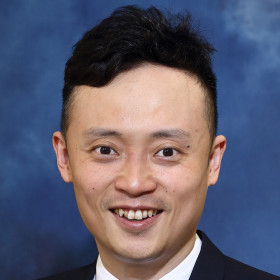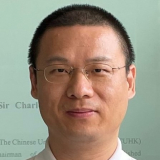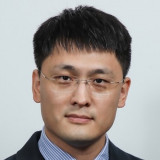Biography
- Associate Professor in Department of Biomedical Engineering at The Chinese University of Hong Kong
- Research interests include nanomedicine, “bio-nano” interactions and non-cationic bionanomaterials
- RFS project - to elevate the biomedical impact of microRNA nanostructures for managing cardiovascular diseases in large animals, including plaque-bearing rabbit models and pig models with myocardial infarction. This project will offer important insights into the bio-nano interactions, efficacy, and safety of nucleic acid nanostructures for clinical translation
- Awards and Honours:
- RGC Research Fellow (2023)
- Croucher Innovation Award (2016)
- AIChE Bionanotechnology Graduate Student Award (2010)
Project Title
- Preclinical Translation of Spherical Nucleic Acid Nanostructures for Managing Cardiovascular Diseases
Award Citation
Dr. Jonathan Choi is Associate Professor and Vice-Chairman (Undergraduate) in the Department of Biomedical Engineering (BME) and Associate Professor (by courtesy) in the School of Life Sciences at The Chinese University of Hong Kong (CUHK). When he began his independent academic career in his hometown of Hong Kong in 2013, he established the first lab on in vivo nanoparticle-based drug delivery and bio-nano interactions (how nanoparticles interact with the body). He was a finalist of ACS Nano Impact Award (2023; one winner and four finalists globally), a recipient of HKIE Best Paper on Materials (2019), and a recipient of Croucher Innovation Award (2016). Dr. Choi co-founded the Department of BME (first BME department in Hong Kong) in 2017 and served as the Assistant Dean (Student Affairs) of Engineering from 2018 to 2021 at CUHK. He hopes to encourage local students to pursue an education and career in STEM disciplines.
Ischemic heart disease and stroke are two top causes of mortality globally. Gene regulation is an emerging therapeutic approach, but gene delivery to the diseased sites is inefficient. In 2022, Dr. Choi reported a microRNA-based spherical nucleic acid (SNA) nanostructure as a dual plaque targeting and anti-atherosclerosis agent in mice. This SNA nanostructure naturally targets scavenger receptors on plaque cells, enabling gene delivery. This project will elevate the biomedical impact of SNA nanostructures for managing cardiovascular diseases in large animals, thus providing insights into the safety and efficacy of RNA nanostructures for clinical translation. Dr. Choi’s long-term research goals are to further our understanding in bio-nano interactions in humans and to develop biomedical inventions that are conceptualized, translated, and sold in Hong Kong.











